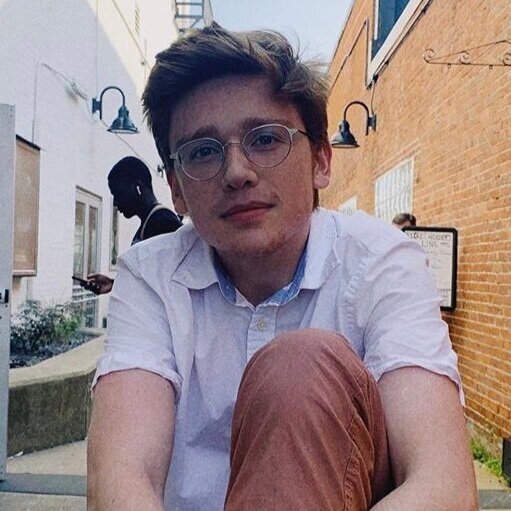Asian Americans have faced racism before in the United States, but the rise of anti-Asian sentiment is occurring across the globe.
A protest in Washington, D.C.’s Chinatown. ep_jhu. CC By-NC 2.0.
The attack happened on New York City’s L train. Noel Quintana, a 61-year-old Filipino man, was on his way to work, a tote bag on the floor beside him. A young White man entered the train and began kicking Quintana’s bag. He wore a Louis Vuitton face mask and a black North Face jacket. Quintana confronted the man and told him to stop. Suddenly wrathful, the stranger produced a box cutter and slashed Quintana across the face. He escaped at the next stop. Quintana’s wound would require nearly 100 stitches.
That day, he joined the growing number of Asian Americans who have become victims of a hate crime. The recent shooting of eight people, six of them Asian American, by a White gunman in Atlanta brought media attention to the spike in anti-Asian hate crimes. From 2019 to 2020, hate crimes in the United States dropped 7%, but those against Asian-Americans rose by 149%. Many cite former President Donald Trump’s rhetoric during the pandemic—calling COVID-19 the “Chinese Virus” and the “Kung Flu”—for mainstreaming racist attitudes that blame Asian Americans for the coronavirus. Hate, much like the virus, has spread quickly and infected much of the Western world.
Thomas Siu, an Asian American student studying in Madrid, was verbally assaulted 10 times between January and March 2020. The 11th time, he’d had enough. He shouted back at his hecklers. In response, they beat Siu unconscious and left him in the street. It took a week in the hospital for him to fully recover. “I've always known that there is racism here,” he told CNN. “People don't really acknowledge it.” A Spanish government report found that 2.9% of Asian nationals in the country were victims of a hate crime, but few newspapers have covered stories about anti-Asian racism. The Atlanta shooting didn’t make a single headline.
An Asian restaurant. Joe Le Morou. CC BY 2.0.
Like many other European nations, Spain is wary of collecting data on race and ethnicity. Systemic racism often eludes analysis for this reason, but individual cases of hate crimes appear in personal accounts and police reports across the continent. For instance, the London Metropolitan Police reported more than 200 hate crimes against East Asians between June and September 2020, a 96% increase from the previous year. Scottish National Party lawmaker David Linden addressed Parliament about some of his Asian constituents describing “the attacks against them, with restaurants and takeouts being vandalized and boycotted and victims being punched, spat at and coughed on in the street and even verbally abused and blamed for the coronavirus pandemic." Spitting and coughing on pedestrians is especially sinister given that COVID-19 spreads through airborne droplets.
In Australia, anti-Asian hate is often expressed in nonspecific terms. Hecklers use the words “Asian” and “Chinese” interchangeably when harassing their victims. Crimes were also quite random; 84% of reported cases were committed by someone the victim didn’t know. But this accounts only for those that were reported. Ninety percent of victims didn’t inform the police of the incident, meaning that many hate crime statistics may be low.
Trust in the police is especially low in Canada. There, the charity Butterfly Asian and Migrant Sex Workers Network serves Asian and migrant sex workers, a part of Canada’s population exceptionally vulnerable to violence. The group released a report that showed half of massage practitioners had experienced violence in the workplace, but only 7% went to the police. Many didn’t feel comfortable seeking the help of law enforcement; 40% felt that the police treated them like criminals. Even more troubling, one-third said they have been abused or harassed by law enforcement, and 12% reported being physically or sexually assaulted by them.
In response to the onslaught of anti-Asian violence, world leaders have united to denounce racism in all its forms. While Western lawmakers highlight methods of addressing anti-Asian hate, leaders of Asian countries express sorrow and solidarity for those affected. In South Korea, one headline about the Atlanta shooting read “The Victims Were Korean Mothers.” Indeed, four were Korean, and one was a South Korean citizen. In a country where many hope to emigrate to the United States, the shooting reminded South Koreans that racism still persists in a country that prides itself on diversity and multiculturalism. Now, many are questioning whether they should opt for a risky American dream or a safer Korean reality.
Michael McCarthy
Michael is an undergraduate student at Haverford College, dodging the pandemic by taking a gap year. He writes in a variety of genres, and his time in high school debate renders political writing an inevitable fascination. Writing at Catalyst and the Bi-Co News, a student-run newspaper, provides an outlet for this passion. In the future, he intends to keep writing in mediums both informative and creative.



